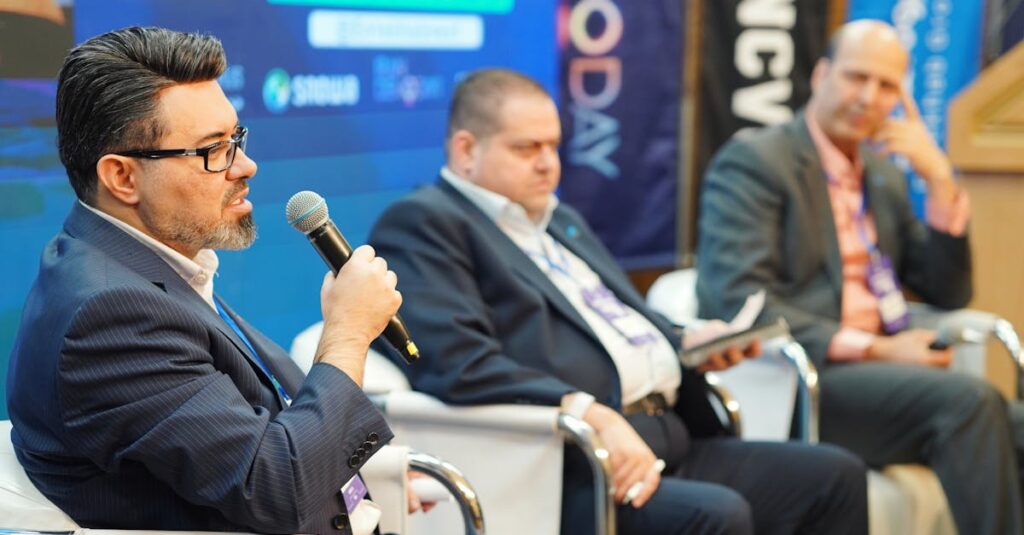Attending a leadership conference on civil and human rights is more than just an opportunity to gain knowledge; it’s a chance to ignite change. With pressing issues surrounding equality and justice, these conferences gather passionate individuals ready to tackle the challenges we face today. I’ve seen firsthand how powerful conversations can inspire action and foster collaboration among diverse voices.
At these events, leaders from various backgrounds share their experiences and strategies, creating a rich tapestry of insights. Whether you’re a seasoned activist or new to the movement, there’s something invaluable to learn. Join me as we explore the significance of these gatherings and how they shape the future of civil and human rights advocacy. Together, we can amplify our voices and make a lasting impact.
Key Takeaways
- The Leadership Conference on Civil and Human Rights unites diverse leaders to address pressing social justice issues such as racial equity, voting rights, and economic justice.
- Keynote speakers, including civil rights leaders and community activists, share transformative insights and inspire attendees to take action in their advocacy efforts.
- Workshops provide hands-on strategies for grassroots mobilization, effective advocacy, and understanding intersectionality, equipping participants with applicable skills.
- Networking opportunities at the conference foster relationships among attendees, enabling collaborations that extend beyond the event for sustained social change.
- The conference emphasizes the importance of marginalized voices, ensuring diverse perspectives shape future advocacy efforts and community initiatives.
- Attendees leave empowered to implement actionable strategies and contribute to a broader movement for civil and human rights, influencing both local and legislative change.
Leadership Conference on Civil and Human Rights
The Leadership Conference on Civil and Human Rights unites diverse leaders dedicated to advancing social justice. This influential gathering spans many topics, including racial equity, voting rights, and economic justice. Attendees include activists, policymakers, and community organizers who share tools and ideas to combat systemic oppression.
Workshops offer insights on grassroots mobilization and effective advocacy strategies. Keynote speakers, who are often renowned figures in the civil rights field, inspire attendees with their experiences and visions for a more equitable future. The conference’s emphasis on collaboration encourages participants to network, fostering partnerships that extend beyond the event.
Participants engage in discussions that shape policies and community initiatives. The conference creates a platform for marginalized voices, ensuring all perspectives contribute to the dialogue on civil and human rights. This constant engagement drives actionable outcomes, making the conference a pivotal event in the ongoing struggle for equality and justice.
Keynote Speakers and Their Impact
The Leadership Conference on Civil and Human Rights features influential keynote speakers who shape discussions and inspire attendees. These individuals bring diverse experiences and insights that resonate with the goal of advancing social justice.
Notable Figures in Attendance
I recognize several notable figures who consistently make a significant impact at the conference.
 Civil Rights Leaders: Key advocates from major organizations contribute perspectives rooted in decades of activism.
Civil Rights Leaders: Key advocates from major organizations contribute perspectives rooted in decades of activism.- Politicians: Elected officials share legislative efforts aimed at promoting civil and human rights.
- Academics: Scholars present research that informs current debates and challenges systemic injustices.
- Community Activists: Grassroots leaders highlight on-the-ground efforts and successes in their local areas.
These speakers engage the audience, fostering rich discussions that ignite passion and motivate participants to action.
Themes Addressed by Speakers
I notice that keynote speakers address essential themes vital to the ongoing fight for equality:
- Racial Equity: Discussions center around dismantling systemic racism through policy changes and community engagement.
- Voting Rights: Speakers emphasize the importance of access to voting as a cornerstone of democracy.
- Economic Justice: Topics include wealth disparities and strategies for promoting economic empowerment within marginalized communities.
- Intersectionality: The complexity of identity and its role in shaping experiences of oppression is a critical point of analysis.
These themes not only highlight current issues but also illuminate pathways for advocacy, creating a powerful platform for change.
Workshops and Panels
Workshops and panel discussions at the Leadership Conference on Civil and Human Rights serve as vital components, promoting in-depth dialogue and practical skill-building. These sessions cover a variety of important topics related to social justice and advocacy.
Topics Covered in Workshops
Workshops focus on actionable strategies and insights. Specific topics include:
- Grassroots Mobilization: Techniques to engage communities and build solidarity.
- Effective Advocacy: Crafting messages that resonate with diverse audiences.
- Legal Rights Awareness: Understanding rights related to voting, employment, and housing.
- Intersectionality in Activism: Addressing the complexities of overlapping identities in social justice work.
- Youth Engagement: Involving younger generations in advocacy efforts.
Each workshop fosters skills that participants can implement immediately, ensuring they leave equipped to make meaningful contributions.
Panel Discussions Highlights
Panel discussions bring together experts and activists to tackle pressing issues. Highlights include:
- Racial Equity Today: Discussions on systemic racism and community-led solutions.
- Voting Rights Updates: Analysis of recent legislative changes and their impacts.
- Economic Justice Initiatives: Strategies to combat poverty and promote equal opportunities.
- Media’s Role in Advocacy: Insights on utilizing media effectively to amplify voices.
- Global Perspectives: Sharing experiences of human rights struggles from around the world.
These panels encourage open dialogue, offering diverse viewpoints that deepen understanding and encourage collaboration across sectors.
Attendee Perspectives
Attendee feedback highlights the transformative impact of the Leadership Conference on Civil and Human Rights. Participants share insights on how the event shapes their understanding of advocacy and amplifies their commitment to social justice.
Feedback from Participants
Participants consistently praise the conference for its diverse range of sessions and accessibility. Many appreciate the opportunity to learn directly from seasoned activists and knowledgeable speakers who address pressing social issues. Attendees report developing practical skills through workshops that focus on effective advocacy techniques, grassroots mobilization, and understanding intersectionality. Feedback indicates that opening discussions on systemic oppression fosters a supportive environment where participants feel empowered to engage and share their own experiences, ultimately expanding their networks and enhancing their advocacy efforts.
Networking Opportunities
Networking opportunities at the conference serve as a vital component for attendees. The event creates spaces for meaningful conversations and partnerships among activists, policymakers, and community organizers. I’ve noticed that attendees often exchange contact information, leading to collaborations that extend beyond the conference. Structured networking sessions facilitate connections around shared goals, while informal gatherings after workshops strengthen relationships among participants. These interactions allow individuals to find mentors, exchange resources, and build coalitions that drive impactful social change in their communities.
Future Implications of the Conference
The Leadership Conference on Civil and Human Rights sets the stage for ongoing advocacy and activism beyond its duration. This conference cultivates a network of leaders who remain connected after the event, allowing collaboration on essential initiatives. This peer support fuels sustained engagement in issues like racial equity, voting rights, and economic justice.
 The skills gained during workshops directly influence participants’ effectiveness in their communities. Attendees return equipped with actionable strategies that address systemic oppression locally. These tools empower them to implement initiatives and craft advocacy campaigns that resonate with their communities.
The skills gained during workshops directly influence participants’ effectiveness in their communities. Attendees return equipped with actionable strategies that address systemic oppression locally. These tools empower them to implement initiatives and craft advocacy campaigns that resonate with their communities.
Keynote speakers inspire attendees to view civil and human rights through new lenses. Their messages create lasting impressions, motivating participants to become more active in their efforts. This renewed dedication contributes to a broader movement advocating for substantial social change.
The importance of marginalized voices remains central to the discussions initiated at the conference. By prioritizing diverse perspectives, the event fosters an inclusive environment where innovative solutions can emerge. This focus ensures that future strategies in civil and human rights advocacy reflect the needs of all communities, enhancing the movement’s relevance and effectiveness.
Through the connections made at the conference, individuals can forge collaborations that encompass various sectors. These partnerships lead to pooling resources and sharing knowledge, enriching advocacy efforts and maximizing impact. The relationships built during the conference create a foundation for ongoing support and collaborative action in the fight for justice.
Looking ahead, the Leadership Conference serves as a catalyst for momentum in civil and human rights advocacy. The dialogue sparked here continues to evolve, directly affecting legislative efforts, community mobilization, and public awareness campaigns. As participants leverage their experiences, they contribute to a sustained movement advocating for equitable policies and practices, crucial for creating a just society.
Create a More Equitable Society For All
Attending the Leadership Conference on Civil and Human Rights is more than just an educational experience; it’s an opportunity to ignite passion and drive change. The connections I’ve made and the insights I’ve gained empower me to take action in my community.
Each speaker and workshop reinforces the importance of collaboration and the need for diverse voices in the fight for justice. I leave inspired and ready to contribute to movements that matter.
As we continue to advocate for civil and human rights, the momentum generated at this conference will undoubtedly shape our future efforts. Together, we can amplify our impact and create a more equitable society for all.



